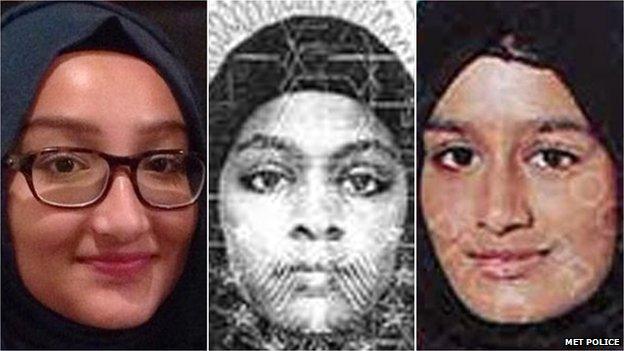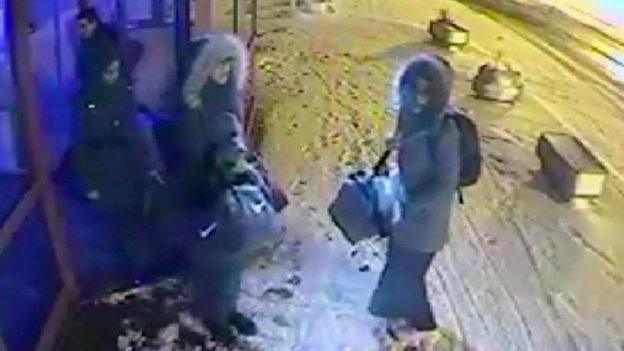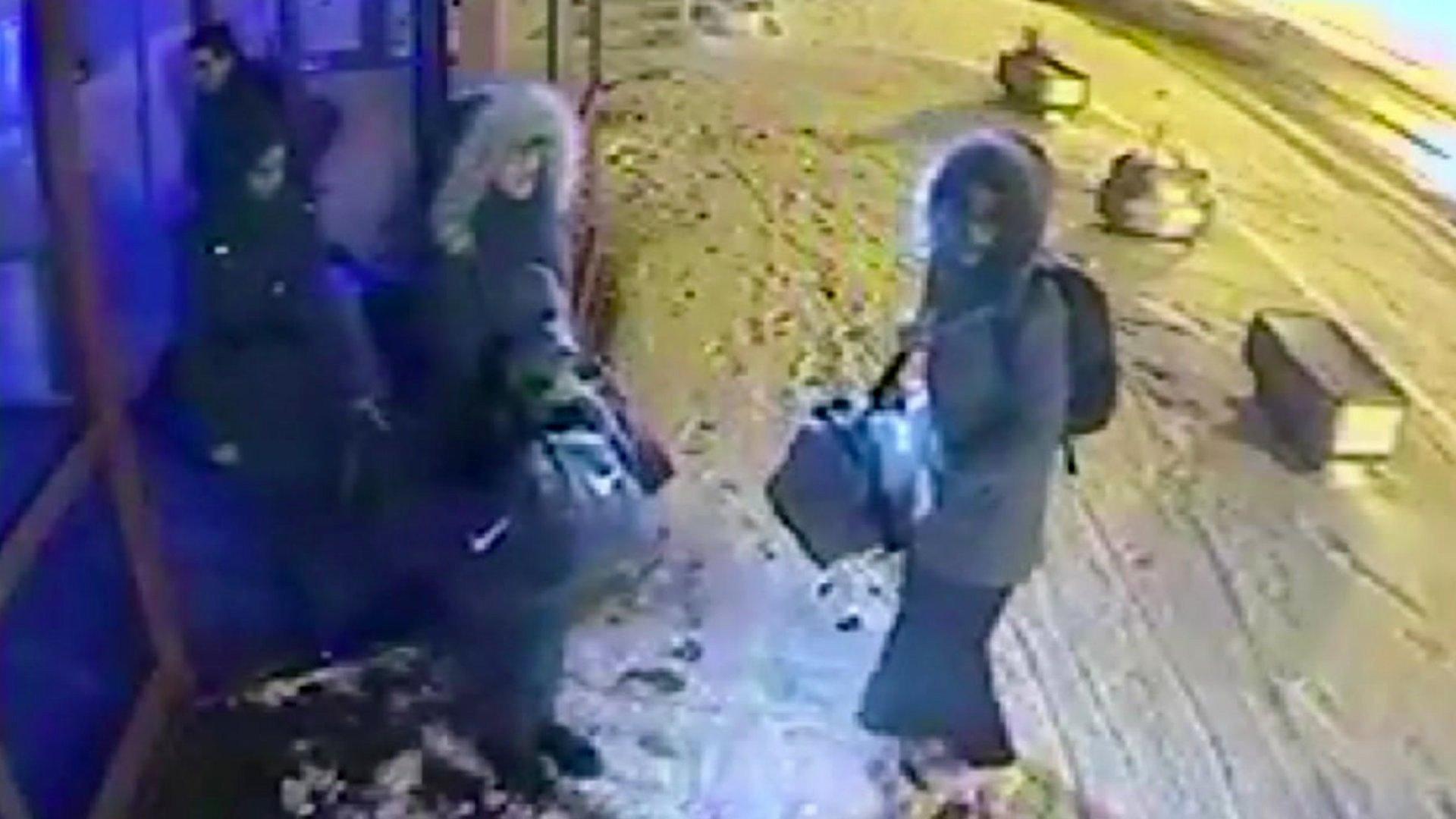Syria girls' letter could have been handled better - police
- Published
Families feel they have been "kept in the dark", as Secunder Kermani reports
Police have said attempts to contact the families of three London girls now thought to be in Syria could have been handled differently "with hindsight".
Their families say the Metropolitan Police did not tell them that a friend of the girls was already in Syria.
The force admitted it could have given letters about the case directly to the parents rather than via the girls.
Shamima Begum and Amira Abase, both 15, and Kadiza Sultana, 16, left their London homes last month.
After their friend - a fellow pupil at Bethnal Green Academy - had gone missing in December, the girls were among seven spoken to by police at the school as potential witnesses.
The Met said the deputy head teacher had contacted the girls' families directly to inform them that their friend was missing.
However, she did not tell them that the girl was believed to be in Syria - as the Met initially indicated on Saturday, before issuing a clarification.
The families say that if they had known where the girls' friend was, then they could have taken steps to intervene with their own plans.
Potential witnesses
The 15-year-old girl, who has not been named, flew from Gatwick to Istanbul on 6 December and then travelled to the region of Syria controlled by IS.
The force said all of the girls were being treated as potential witnesses who may have had information about their friend.
The girls were also given letters to take to their parents in February, asking permission for counter-terrorism detectives to take handwritten statements about their friend's lifestyle and beliefs.
The letters, which made it clear that the girls were not being investigated, were found hidden in their bedrooms only after the three had left home.

From left: Kadiza Sultana, Amira Abase and Shamima Begum left the UK in mid-February
The letters, first published by Vice News, external, were dated 2 February and handed to the girls three days later - 15 days before they left London.
The text of the letters read: "I understand your daughter may have known [the missing 15-year-old] as a friend.
"It is my role to understand [the missing girl] better and the reasons why she has decided to leave this country.
"I am trying to gather information which may help to find her and reunite her with her family.
"This will help the police and partner agencies to understand and prevent other vulnerable teenagers from disappearing. For these reasons I seek your permission to speak to your daughter."
'Vulnerable teenagers'
A spokesman for the Metropolitan Police said on Saturday: "We now understand that these letters were not passed on in every case.
"With the benefit of hindsight, we acknowledge that the letters could have been delivered direct to the parents.
"All the teenagers were all being co-operative, they were all being treated as potential witnesses and there was nothing whatsoever to indicate that they themselves were planning to travel to Syria."
There was no indication of them being vulnerable or radicalised, the force added.

The girls were spotted on CCTV in Istanbul en route to Syria
"It remains a priority to try to prevent people travelling to join terrorist groups whether they be determined terrorists, radicalised individuals or vulnerable teenagers."
The three girls are thought to have joined Islamic State (IS) in Syria, having initially taken a flight to London to Turkey.
Relatives have criticised detectives for not going to them directly with what they believe was vital information about their friend or their request for statements.
Kadiza's cousin, Fahmida Aziz, said: "I think it's absolutely crazy for an authority like a school or the police not to inform the parents.
"They kept us in the dark."
Halima Khanon, Kadiza's sister, added: "If we had known what was going on, we would have definitely looked into this... taken precautions with my sister."
Amira's father Abase Hussen said he believed he could have stopped her from leaving Britain for Syria.
Mr Hussen said: "The message I want to send is 'we love you, we miss you and [can't] imagine life without you'."
- Published1 March 2015

- Published24 February 2015
